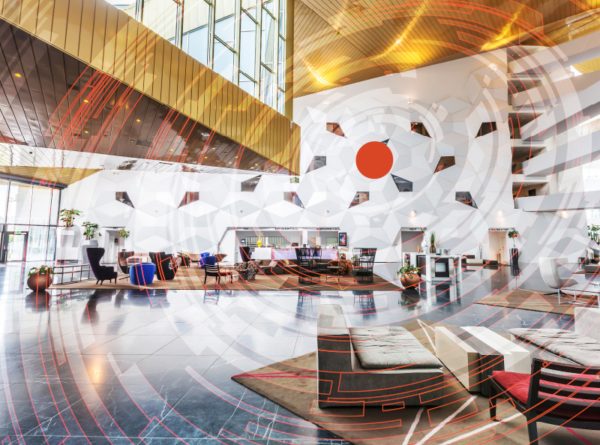How is Big Data Transforming the future of the travel and hospitality industry?
The hospitality and travel industry are on the rise today. And continue to be a trendsetter. The reason being it has become much more affordable than ever before to a wide range of audience. But still, today, also, a few can afford the luxury of getting tickets booked for flights and hotels.
Hotels and other companies which falls under the category of the hospitality industry, are constantly getting a grip with the idea to use big data. And there are a number of ways to deliver a better user experience and generate the revenues as well.
The aim to write this article is that the users can explore more about the big data and how it is transforming the travel and hospitality industry.
What is big data?
In general, when we talk about big data, it comprises a large set of data, that are used in business in day-to-day activity. This data can be collected from various different sources and can vary as well. But when we talk about the hospitality industry, these data sets are generally related to customer interactions and their experiences.
The travel and hospitality industry is the one, which depends heavily on the data it collects and nowadays has become more advent and efficient because of the introduction of big data and analytics into it.
Let’s know more about it.
Well, data to be categorized as big data, it has to be too large in volume and quantity, so that it can be processed through traditional data processing methods. Crucially, this data can help companies to identify key trends and patterns and can inform their day to day business practices.
For instance, let’s check out, How Marriott uses big data analytics to constantly improve-
Well, with the use of big data analytics, the Marriott group of hotels got a competitive advantage. Marriott has been using big data, to keep track of competitors brand and hotels, to check what’s hot what’s not, to know what’s trending, to analyze the revenue streams that too outside of the rooms, facilities and services, to make sure the satisfaction of the guest and the local people.
However, the key areas, Mariott is focusing on are revenue and end-user experience.
The company is focusing on revenue management, for instance, it has set optimized prices, to win over the profit margins. This approach of revenue management taken by Marriott is known as dynamic price automation. And it helps the hotel chains to predict demand and patterns of consumer behaviour.
The other key areas where the company has its focus are to provide a seamless and comfortable experience to its customers. In order to do the same, companies have introduced digital technologies in services, which collects the data on customers satisfaction as well as guests taste. For instance, taking facial recognition into consideration, that enables guests to check-in, in less than a minute via digital terminal it helps them saves time as they are not supposed to stand in long queues anymore.
Additionally, the hotel chain has been experimenting on brand new guests service robots, these are going to help the hotels to carry routine tasks like concierge services. The company has also partnered with the Amazon to install virtual digital assistants for the customers in some of its properties. And every room in the will be equipped with Amazon Echo speakers that feature Alexa for Hospitality, and the good news is, the software is specially designed for the hospitality industry only. The software has made in such a way that guests would be able to access the information about the hotel, they can request services as well, they can listen to the audio-books, play music and control smart home products like lights, and TV.
Finally, this provides Marriott to collect tons of data and information about their guest’s preferences and provided a company with a deeper understanding of what their customers are searching.
Ways How is Big Data transforming the future of the travel and hospitality industry?
Managing Reputation:
As the name suggests managing reputation, we all can see running a hotel chain is not at all a cakewalk, it’s about Offering services like cleaning room, bar, restaurant and service management demands a lot of money, time and courtesy as well. It’s not at all an easy task. Moreover, all these services are a part of the hospitality and travel industry. And to run a hotel chain is not a cakewalk.
keeping the record of their customers and all the related data and information can help the hotels to drive hospitality. With the help of the data, it has become easy to know whether the customer is satisfied or disappointed with the services offered to them. And for instance, if the website of a particular hotel and services that have been shown are not attractive and appealing enough, the person would never prefer to stay there.
The big data is helping the hotel chain to function smoothly, especially the mode of payment has become flexible.
Additional Services:
The good thing about the hotels is that it has interaction with both, the current as well as potential customers. Through this, hotel chains can gather a large amount of data. And when analysed thoroughly, it provides the information about the services, customers use and they the services they would request.
This gives an opportunity for the business owners to introduce new services in the arena and to eliminate the services that are no longer required. Further, big data is used to inform decisions regarding partnerships with other brands.
Engine booking:
As we can see, booking engines have transformed the way the people arrange travel, AI has already took it to a whole new level. Engine booking platforms, for instance, Avvio’s Allora helps in maximizing booking and enhance customer experience that basically incorporates data from transaction done on the hotel’s direct booking channel. And with this detail, it becomes crystal clear how AI systems are becoming ideal packages for guests, discover about the preferences in air travelling, hotels, etc.
Virtual concierge:
As discussed in the use case of Marriott, hotels today are making use of robots, for guests check-ins, for instance, the hotels in, New York and Tokyo. These help them to perform other duties as well. The robots are made in such a way that they can answer the questions and provide suggestions on the go. Also, according to the current situation, the virtual concierge apps are trending because they can make guests more comfortable for instance, they can adjust the room temperatures and make pillows available in a room depending on the number of guests staying.
Smart chatbots:
The chatbots are managing routine tasks not only in the hospitality sector but in a variety of industries as well. Smart chatbots manage consumer needs regarding reservations, booking flight or hotel tickets etc. moreover, it can suggest restaurants as well. But chatbots can expand its role by adding more AI power. It helps chatbots to function much better. AI integrated chatbots in the form of an app or voice-activated device operates as Alexa or Hey Google.
Focusing on gauging preferences:
Customer preferences are the key factor to enhance customer experiences. And the better way to do this is by gathering the data about the customer and their preferences from different sources. You can consider the internet as well and this data must be carefully analysed.
However, the data can be gathered through social media as well. We can have knowledge about a customers journey at a particular place, about their food preferences at a particular restaurant. Examing these kinds of information from a number of sources the essential insights into the customer’s culinary likes. And for instance, if that particular person book a reservation at the hotel, the company can offer a complimentary reservation at his/her favourite restaurant as well. Isn’t that amazing??
Further, these kinds of strategies and factors improve the customer’s travel experience and make their visit frequent.
Conclusion:
The big data’s power into the travel and hospitality industry has no limit. Also, with the approach, a lot of money can be saved and you can run your business’s day to day operations smoothly. Also, with the advent of big data and technology, managing crises and adversity becomes easier.
We can’t thank big data enough for this!!




